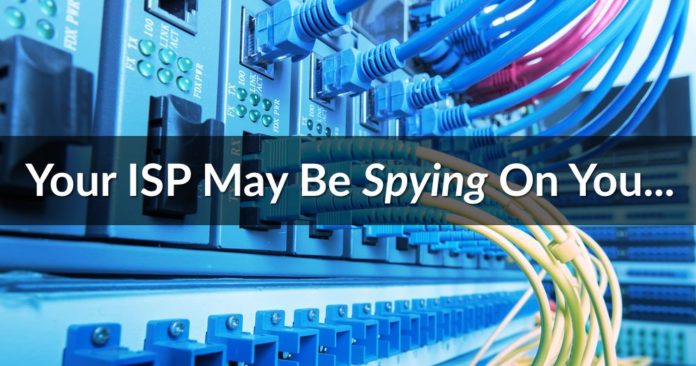
Internet Service Providers (ISPs) are those that (obviously) provide you with Internet access. They could be telecom giants, cable operators or some smaller companies that bring wire or wireless signal to your home or office.
As such, they have a specific place on the network, sitting between you the user and the internet. This, in turn, provides them with access to a ton of data about all of its users. And that’s what we’re going to talk about today…
ISP can see a lot of data
As we have already mentioned, ISPs are standing between you and the internet, thus they know pretty much everything you’re doing online. They know which websites you’re visiting, what streaming services you’re using and so on. Heck, if you’re not connecting via a secure connection (HTTP, as opposed to HTTPS), they may be able to even get your usernames and passwords for various web services you’re using.
That is scary, but that’s just the way it goes. Luckily, ISPs seldom spy on their customers and most services dealing with sensitive information use secure servers (HTTPS) so even if they wanted to check what’s going on, they could do little about it.
Furthermore, an ISP could learn a lot by analyzing metadata, which is the data about data and which doesn’t reveal what each user is doing online, but provides them with general information about the kind of user you are. For instance, they could get information on size, timing, and destination of your data packets — which could tell them whether you’re browsing the web, using Skype, downloading files with BitTorrent or streaming movies from Netflix.
In other words, ISPs could potentially have more data on you than Google and Facebook. That is scary, but could also be mandated by law. Which brings us to the next section…
What ISPs do with all that data?
As we’ve briefly noted above, in many countries governments require ISPs to keep logs for some period of time. When some accident or, God forbid, a terrorist attack happens — authorities could ask for those logs to help them solve an important case.
On the other end of the spectrum, in some countries ISPs indirectly work for the government, helping them censor the internet. After all, they know which sites are requested and could instead show a blank page (rather than the regular website the user asked for).
ISPs could also sell the browsing history of its users which is the data marketers could benefit from. In the United States, ISPs have had the right to sell your private browsing history since 2017, as long as they anonymized your personal data. Major ISPs like AT&T Comcast, and Verizon said their customers would be able to opt out of data collection.
All this sounds fishy and, unsurprisingly, the FTC is still investigating how ISPs handle personal data and what they with it.
Three things you could do to protect your privacy
ISPs obviously know a lot about you as their customer, but you are not helpless. You can do a few things to protect your privacy online:
1. Visit only HTTPS websites
When you visit an HTTPS website, ISPs can do little to know what you’re doing there. The entire communication between you and the HTTPS website you’re visiting is encrypted, leaving your ISPs with ciphers it can’t read. The good news is that the most popular services are using HTTPS connections these days.
2. Use Tor
With Tor, your Internet traffic is encrypted and routed through multiple (Tor) servers. Tor routes data through different servers before reaching its final destination. By doing so, it protects you against “traffic analysis,” which can reveal your identity and location by monitoring the data at different points between the computer and the websites you visit. The bad news is that Tor requires the special Tor browser and its connections can be slow. (Related: Tor Explained, Compared to the VPN)
3. Get a VPN
This is the easiest solution that will do all the hard work for you in the background. A VPN app can be installed on your computer, phone, tablet or even a router from where it can do its magic, which includes encryption of all outgoing and incoming traffic from/to your device(s). It is seamless and, in addition to making you anonymous online, a VPN will also unblock many content sources that could otherwise be outside of your reach. Think: streaming services like Netflix and Hulu, social media sites, torrenting, and so on.
These days, running a VPN is a must for everyone, but getting the right service could be tricky. Therefore, we have compiled not one but multiple lists to make the selection process easier. For the best of the best services, start with our Top 5 VPNs list. It has all the great field-tested VPNs you can get today.
So what are you waiting for? Get a VPN and regain your privacy!
